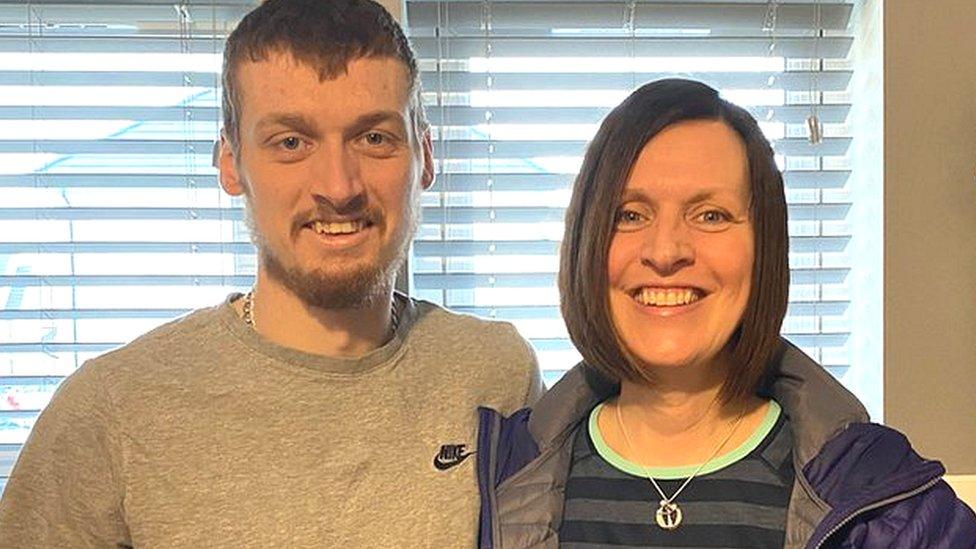Nephew's kidney transplant inspires doctor's research
- Published
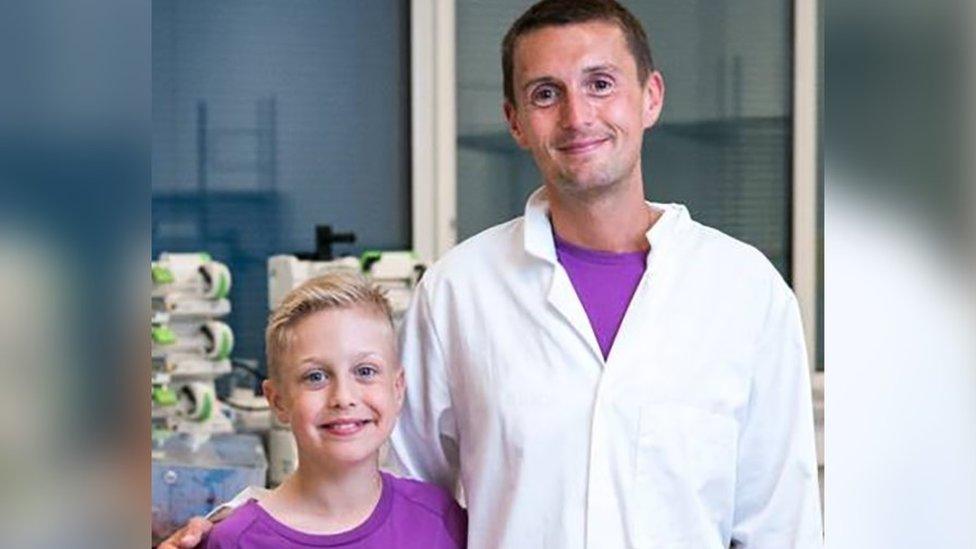
Luke said his kidney transplant "has really changed my life"
A doctor has switched his medical research after seeing "eye-opening" challenges his 11-year-old nephew with kidney disease faced.
Luke, of Ellesmere Port, Cheshire, was diagnosed with polycystic kidney disease, external soon after birth and had a kidney transplant in March.
His uncle Dr John Stone is researching innovative ways of keeping kidneys available for transplants for longer to save organs "going to waste".
He said it would be "humbling" to help.
Kidney Research UK said there was a "small window of time" before a kidney retrieved from the donor loses the potential to be a successful transplant and estimated nearly 100 kidneys a year are not transplanted as they are deemed clinically unviable.
Dr Stone switched from lung transplantation research to investigate a novel method known as normothermic perfusion which can keep kidneys alive outside of the body for longer and give surgeons more time to conduct life-saving transplants.
"Seeing Luke on dialysis was a real eye-opening experience into the challenges that kidney disease patients face daily," he said.
He said his nephew was likely to need another transplant in the future.
"Working on research that could benefit him and others is humbling," the senior scientist at Pebble Biotechnology Laboratories said.
"Transplant centres face operational challenges such as a lack of resources and sharing operating theatres with other departments which can mean that surgeons simply run out of time.
"If we can keep a kidney on a perfusion circuit for 24 hours, we can give both the surgeon and the patient more time to receive their life-saving transplant and save these organs from going to waste."
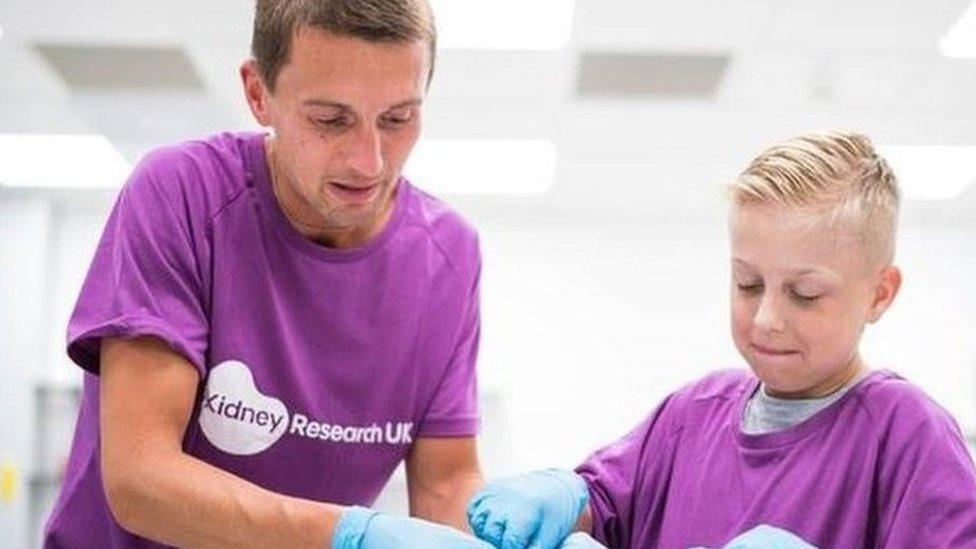
Luke said he hoped his uncle could "make more kidneys available for people who need them"
Sandra Currie, chief executive of Kidney Research UK, which is funding the research, said many patients have made urgent trips to hospital only to be told the donor kidney cannot be used after all.
"The research we are funding aims to extend this critical window of opportunity from retrieval to transplant."
Luke, whose father, Carl, donated him his kidney, said: "My transplant has really changed my life and allowed me to do all the things I missed when I was on dialysis, I can even go swimming now."
He added: "I hope my kidney stays healthy for a long time and that uncle John can make more kidneys available for people who need them."
Dr Stone and the Pebble Biotech team believe the methods could be replicated in a clinical setting within the next three years.

Why not follow BBC North West on Facebook, external, Twitter, external and Instagram, external? You can also send story ideas to northwest.newsonline@bbc.co.uk
Related topics
- Published30 July 2022
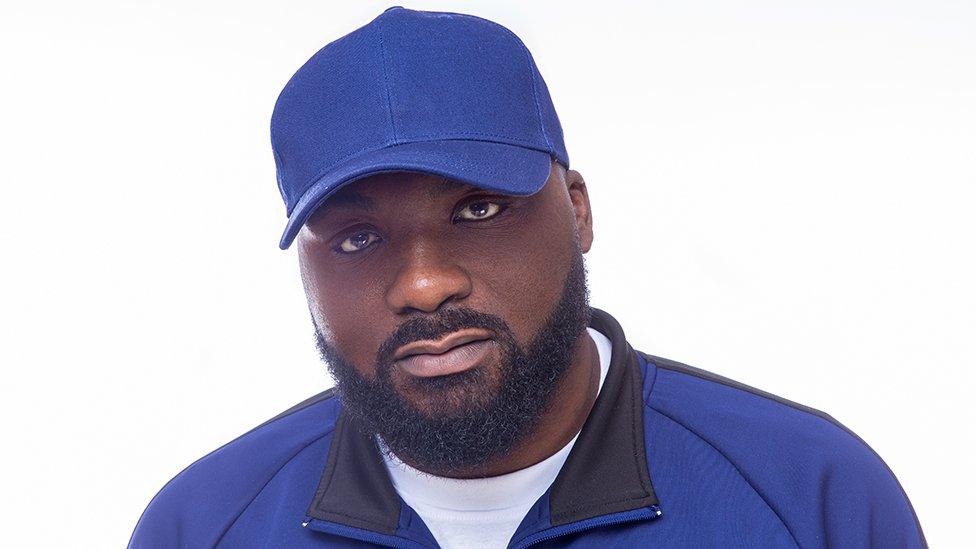
- Published8 April 2022
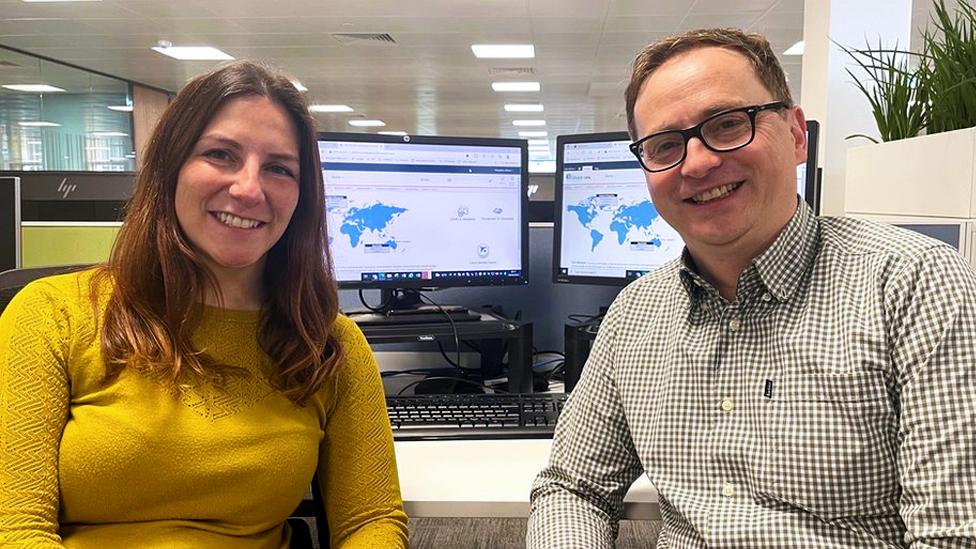
- Published10 March 2022
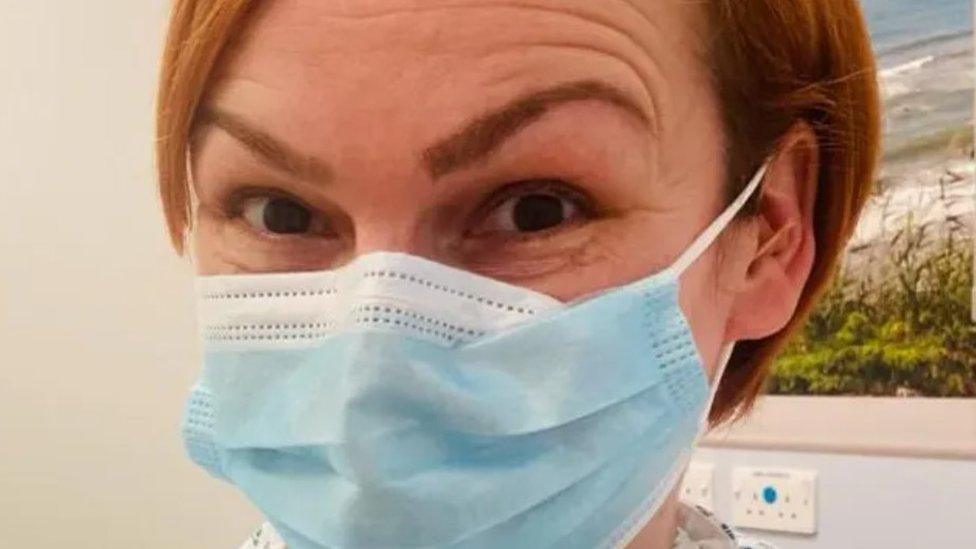
- Published8 March 2022
